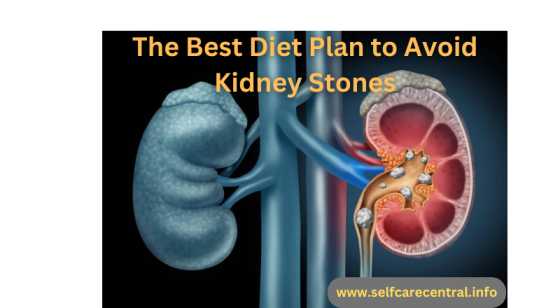1. Understanding Kidney Stones
1.1 What are kidney stones?
Kidney stones are hard deposits form in the kidneys. They’re composed of and salts that stick together. They can be as tiny as a grain of sand or grow as large as a golf ball. Painful, indeed.
1.2 Common causes of kidney stones
Several factors can lead to the formation of kidney stones. Insufficient water intake is a major contributor. Dietary habits also play a role—excessive salt or animal protein intake can heighten your risk. Genetics may also be a factor.
1.3 Risk factors for developing kidney stones
Certain individuals are more prone to kidney stones. A history of previous stones, being overweight, having conditions like gout or inflammatory bowel disease, and taking specific medications can increase your likelihood.
Read more:10 Foods to Eat and Avoid for a Healthy Liver
2. The Role of Diet in Kidney Stone Prevention
2.1 How food choices impact stone formation
Your diet significantly impacts the potential development of kidney stones. Foods can either increase stone-forming substances in urine or help prevent stone formation.
2.2 Key nutrients to focus on
Key players include calcium, oxalate, & uric acid. Balancing these in your diet is essential. Interestingly, adequate calcium intake can actually prevent stones.
2.3 The importance of hydration
Hydration is crucial—water helps flush out the system & prevents concentration of stone-forming minerals in urine.
Read more:7 Natural Remedies That May Help Reduce Hypertension
3. Foods to Embrace: Stone-Fighting Champions
3.1 Calcium-rich foods
Dairy products like milk, yogurt, & cheese are excellent calcium sources. Leafy greens like kale & broccoli also provide calcium.
3.2 Fruits and vegetables high in citrate
Citrus fruits—lemons, limes, oranges—are beneficial as they contain citrate, preventing stone formation.
3.3 Magnesium-packed options
Magnesium aids in preventing stones as well; nuts, seeds, & whole grains are good sources.
4. Foods to Limit: Potential Stone Culprits
4.1 High-oxalate foods
Foods high in oxalate such as spinach, rhubarb & chocolate can contribute to stone formation and should be consumed moderately.
4.2 Sodium-rich foods
High salt intake can increase urinary calcium levels leading to stone formation; reducing processed foods and not adding extra salt is advisable.
4.3 Animal protein sources
Excessive animal protein raises uric acid levels which can cause certain types of kidney stones; incorporating plant-based proteins balances the diet better.
5. Crafting Your Kidney Stone Prevention Meal Plan
5.1 Balanced breakfast ideas
Kick-start your day with a healthy breakfast: consider oatmeal with berries or a veggie omelet with whole-grain toast.
5.2 Lunch and dinner strategies
For meals, aim for variety: half the plate should be fruits/veggies, a quarter lean protein, & another quarter whole grains.
5.3 Smart snacking options
Opt for kidney-friendly snacks like fresh fruit, unsalted nuts, or carrot sticks with hummus when hunger strikes.
6. Hydration Habits for Kidney Health
6.1 Daily water intake goals
Aim for 8-10 glasses of water daily; it’s manageable with a reusable water bottle and regular reminders.
6.2 Beneficial beverages beyond water
Besides water, herbal teas, coconut water & low-fat milk contribute to hydration needs too.
6.3 Drinks to avoid or limit
Avoid sugary sodas and excessive caffeine; moderate alcohol consumption is also recommended to prevent dehydration.
7. Lifestyle Factors That Complement Your Diet
7.1 Exercise and its impact on kidney health
Regular physical activity helps maintain a healthy weight which reduces kidney stone risk; even daily walks are beneficial.
7.2 Stress management techniques
Managing stress through yoga, reading, or nature walks positively affects kidney health; even simple deep breathing exercises help immensely.
7.3 The importance of regular sleep patterns
Sufficient sleep (7-9 hours) supports overall health including kidney function; adhering to a consistent schedule improves well-being significantly.
Summary
A balanced diet, ample hydration & a healthy lifestyle are key to preventing kidney stones; these adjustments benefit both kidneys & overall health over time—plus you might discover some favorite new foods!
Frequently Asked Questions
Can I still eat dairy if I’m prone to kidney stones?
Yes! Calcium from dairy helps prevent stones when choosing low-fat options.
How quickly can dietary changes affect kidney stone formation?
Changes typically take weeks to months for noticeable effects; persistence is vital for outcomes beneficial to kidneys!
Are there any supplements I should take or avoid?
Consultation with a doctor prior is recommended; some supplements like calcium may help whereas others could pose risks.
Can children follow this diet plan?
Children may adopt this diet but their nutrient needs differ from adults—professional advice from pediatricians/dietitians recommended!
How often should I have check-ups if I’m prone to kidney stones?
Frequency varies individually based on history/risk factors; doctors provide tailored check-up schedules accordingly.


